Key sports law cases and developments to watch in 2018 - Europe, Middle East, Africa, Asia and Australia
Tuesday, 09 January 2018As 2018 begins, we wanted to take a look at the coming year and provide insight into which sports law cases you may wish to follow in 2018.
In this feature, some of the leading sports lawyers in Europe, the Middle East, Africa, Asia, and Australia share their views on what they think are the key sports law issues and developments to follow in 2018.
We would like to thank all of the contributors to this article for taking the time out of their busy schedules to share their views with us.
Featured lawyers:
- Brent Nowicki, Managing Counsel and Head of Anti-Doping Division, Court of Arbitration for Sport
- Jack Anderson, Professor of Sports Law, Melbourne Law School
- Nandan Kamath, Principal Lawyer, The Law Offices of Nandan Kamath
- Richard Wee, Partner, MahWengKwai & Associates
- Steve Bainbridge, Head of Sports Law & Events Management, Al Tamimi & Company
- James Kitching, Managing Director, Kitching Sports
- Roshan Gopalakrishna, Sports, Media & Entertainment Lawyer, The Law Offices of Nandan Kamath
- Luca Ferrari, Partner and Global Head of Sports, Withers
- Emilio Garcia, UEFA Head of Disciplinary and Integrity
- Nan Sato, Attorney at Law, Field-R Law Offices
- David Casserly, Partner, Kellerhals Carrard Lausanne/Sion SNC
- Kei Ikuta, Associate at Nagashima Ohno & Tsunematsu
- Cassandra Heilbronn, Senior Associate, MinterEllison
- Josep F. Vandellos, Sports Lawyer
We hope you enjoy the article. If you think there’s anything you would have liked to have seen be mentioned please feel free to tweet us @LawInSport or email us with your suggestions at
Australia
 Jack Anderson
Jack Anderson
Professor of Sports Law, Melbourne Law School
Of interest in 2018 will be the findings of a Commonwealth Government appointed review panel into Australia’s sports integrity arrangements. The panel is chaired by a former Judge of the Supreme Court of New South Wales, Mr James Wood and also features Mr David Howman, formerly director general of WADA and Mr Ray Murrihy former Chief Steward of Racing NSW. They have consulted widely with all major sports bodies and other stakeholders focusing on Australian sport’s current capacity to deal with integrity threats such as the rise of illegal offshore wagering, match-fixing and doping. It is likely that they will consider the merits of establishing a dedicated national sports integrity commission or national sports tribunal for Australia or even a national sports ombudsman office.
Cassandra Heilbronn
Senior Associate, MinterEllison
The area of transgender athletes and what competitions they are eligible to play in is surely set to have an increased focus following Hannah Mouncey’s eligibility ruling to play in the AFL Women’s competition. The NRL has announced a limited women’s competition and we have the ongoing success with the women’s Rugby Union. As we start to the see more and more elite women’s competitions announced, it will give rise to more enquiries regarding eligibility and management to reduce the risk of discrimination claims.
I think we are going to see a rise in duty of care matters, whether it be from a Club to an elite player perspective in terms of mental wellbeing and injury management (post Anthony Watmough claim), down to the more general sports liability claims at the grassroots and semi-professional level. The latter will be in response to the ongoing Alex McKinnon case, but also the concussion cases that have been brought, including the one by Jason McManus.
Finally, the area of sports governance will continue to be a hot topic. The question will be, is anything going to change from this perspective.
Middle East
 Steve Bainbridge
Steve Bainbridge
Head of Sports Law & Events Management, Al Tamimi & Company
At the time of writing, preparations for the GCC-wide implementation of value added tax (VAT) are well underway. The Kingdom of Saudi Arabia and the UAE are preparing for a January 1st roll-out, with all entities engaged in business activities with turnover in excess of a threshold set in their respective national VAT law legally obligated to register with the relevant authorities. Bahrain, Oman, Kuwait and Qatar have committed to implementation before the end of 2018. This will be of significant impact for event organizers, venue managers and special consideration should be given to multi-year sponsorship deals that were not drafted in contemplation of local tax considerations.
The commitment in KSA to Vision 2030 includes privatization of Saudi sports clubs. While the specific processes and the precise scope of investable asset classes have not yet been made public, there is considerable interest from the market and there is anticipation that 2018 will see developments in this area.
eSports have landed, with a number of high profile events taking place in the Middle East. The question of structural organization and the extent to which eSports as a pursuit sees itself as a benefitting from classification as sport (or not) could be a key driver for the extent to which this is treated as a sports issue moving forward. What is less speculative is that the friction points requiring regulation – particularly in the Middle East (media and advertising, security for mass public attendance events, etc.) are expected to increase as the phenomenon grows.
Interestingly, the excitement around preparations for Dubai Expo 2020 are generating a sports and events crossover effect. With certain common event features from title sponsorship to ticketing and accreditation, F&B opportunities, venue management skill-sets and IP protection strategies, we are seeing a growing number of investors, personalities and contractors we would normally expect to see operating primarily in the sports sector now diversifying their interests and following new market opportunities.
Asia
Nandan Kamath
Principal Lawyer, The Law Offices of Nandan Kamath
While governance issues will remain the ones to watch in 2018, there are a couple of other themes that will be worth following – the rights of athletes and the rights of the viewing public.
While the most significant narrative of governance reform has been structural and procedural integrity, another emerging thread includes the human rights of athletes. This includes their safety and medical care, their rights to organise, create interest groups and be represented, and to participate in governance through athletes’ commissions, on technical committees and with board seats. This has been a widely neglected area, which is beginning to find its feet alongside the commercialisation of sport and the broader international narrative of individual rights.
Similarly, the voice of the viewer and the fan has barely had an outlet – the historical language when dealing with this constituency has been of “concessions” rather than “rights”. With a renewed focus on fan engagement by commercial enterprises and a recognition that the viewer are best not taken for granted in business models, we are likely to see far more consumer centricity and focus in service design and delivery, grievance redressal and the like, not only by private bodies but also by public authorities. For example, towards the end of 2017, there were suggestions that the public broadcaster in India might be granted (under the mandatory sharing laws) the free-to-air rights to IPL cricket broadcasts by virtue of the league being notified by the government as a “sporting event of national importance”. These rights were sold to a private broadcaster for $2.5 billion for 5 years. How this plays out will undoubtedly be worth watching – it would turn existing conceptions of mandatory sharing on their head.
 Richard Wee
Richard Wee
Partner, MahWengKwai & Associates
With numerous major tournaments and competitions scheduled for 2018, including the Commonwealth Games at Gold Coast, Australia and the Asian Games at Jakarta, Indonesia, we foresee a greater interest by the sports community to invest and at the same time, tap into the strength of Intellectual Property in Sports. It is apparent that many sports association and athletes, over the last few years, have embarked on monetising their image rights. We have noticed this trend whenever we had the opportunity to offer advice to sports associations or athletes from all over Southeast Asia.
One other area of sports that has been slowly but surely gaining popularity and traction in Asia recently is eSports. For eSports law, it is prudent to note that, looking at the trend of ever-increasing prize pool money in eSports, there is a likelihood that issues like doping, eDoping, as well as match-fixing in eSports will come to the forefront. With market analysts like Business Insider predicting eSports to become a billion dollar industry within the next few years, we foresee that there will be a rise in game developers and publishers enforcing their rights under copyright against other developers and publishers who try to join the fray. International Copyright Law, especially in terms of content, design, and make, will be put to the test. We are also pleased to share that as of 1st December 2017, Messrs MahWengKwai & Associates launched its eSports law division within our Sports Law Practice Group to offer services in this growing area of eSports.
James Kitching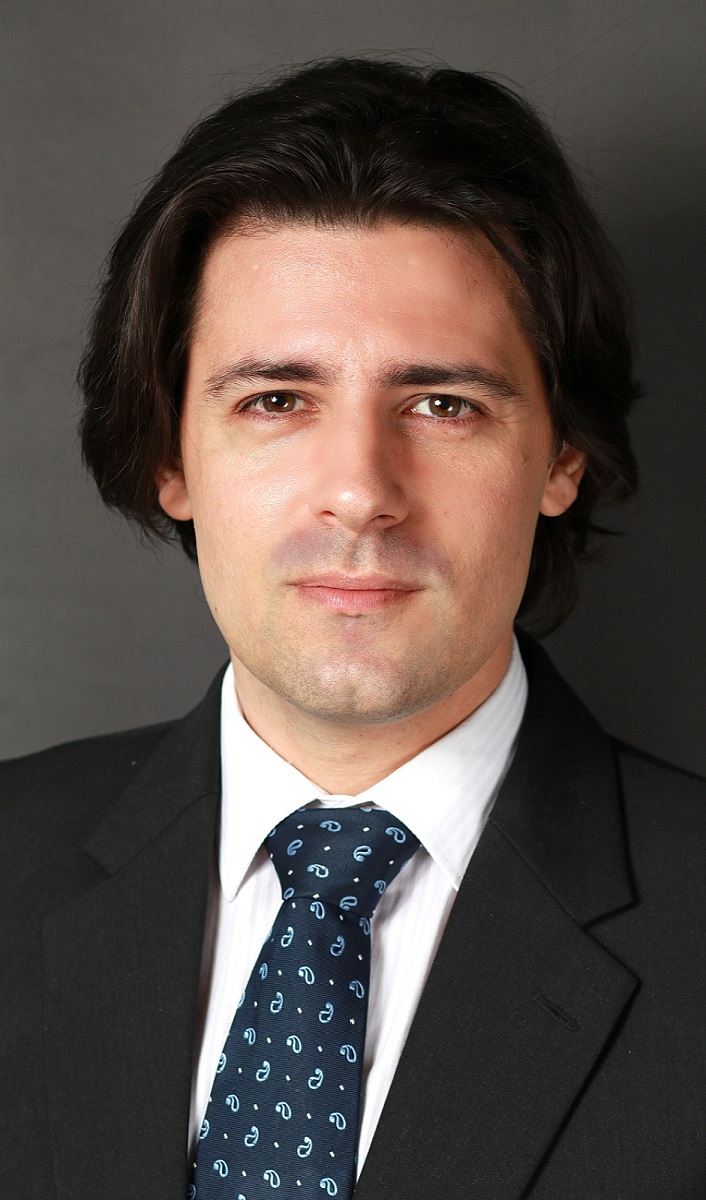
Managing Director, Kitching Sports
Geopolitics and sport are never truly separated in Asia, and 2018 looks set to continue the tradition. A number of matters which spilled in to the sporting arena in 2017 (or earlier) are likely to be the ongoing big stories of 2018. The biggest issue thus will undoubtedly be whether the international and Asian governing bodies are able to manoeuvre the blurred line between politics and sport and successfully organise their competitions.
The Qatar blockade has caused headaches for international, continental and regional governing bodies, brought into question several media rights agreements, and caused the cancellation of trade events. The Asian Football Confederation recently announced, with a number of qualifications, that matches between clubs from Saudi Arabia, Qatar, and UAE in the AFC Champions League 2018 would 'in principle' be played on a 'home and away' basis.
Following attacks on Saudi diplomatic missions in Iran and the issuing of a travel ban to Iran by the Saudi government, matches between clubs from Saudi Arabia and IR Iran in the AFC Champions League have been played on neutral territory in the past two seasons. Mediation at the Court of Arbitration for Sport between the football associations has not yet resolved the impasse, and the neutral venues look set to continue.
The Palestinian Football Association and FIFA were recently in the Court of Arbitration for Sport over the failure of FIFA to correctly take action over a proposal that was to be heard at the FIFA Congress in Bahrain in May 2017. The Palestinians have also reportedly appealed to CAS over a separate FIFA decision to take no action about 5 clubs domiciled in the West Bank which participate in leagues affiliated to the Israeli Football Association.
The growing tension over control of the Hong Kong parliament has manifested itself in football. The Hong Kong Football Association recently found itself in hot water after its supporters booed the Chinese national anthem at international matches. Earlier in the year, supporters of Guangzhou Evergrande displayed a discriminatory banner at a match against Eastern SC played in Hong Kong.
The old adage that “sport and politics don't mix” looks set to get a real workout in Asia in 2018.
Roshan Gopalakrishna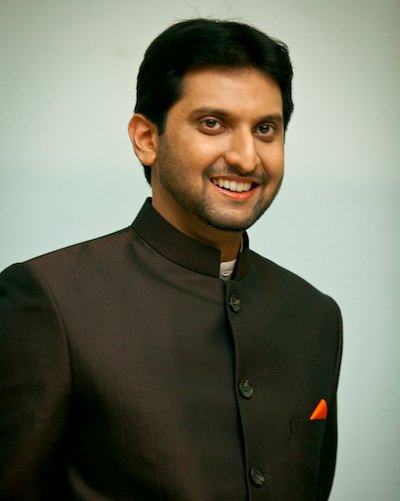
Sports, Media & Entertainment Lawyer, The Law Offices of Nandan Kamath
The issue to watch out for, especially in Indian cricket, is whether the rise of “player power” in 2017 will culminate in the creation of a player association in 2018. More recently, Indian players, led by captain Virat Kohli have been instrumental in securing an increase in the player retainer amounts, a change of the national coach, and player-friendly international cricket schedule. Over the years, the BCCI has been steadfast in its refusal to recognise any player association. However, the formation of a player association is one of the recommendations of the Lodha Committee, and the first tentative steps in this regard have been taken with the formation of a Steering Committee. The challenge before any player association will be to ensure that the interests of all Indian players (men, women, junior, domestic) are equitably protected.
The implementation of the new National Code for Good Governance in Sport, drafting of an anti-doping legislation, and the passage of the National Sports Ethics Commission Bill will be matters to follow closely in 2018.
 Nan Sato
Nan Sato
Attorney at Law, Field-R Law Offices
Reconciliation of Old Traditions and Modern Sports Ideology in Japanese Sports
Harumafuji, a former sumo grand champion, announced his retirement on November 30, 2017 for assaulting a lower-ranked sumo wrestler at a drinking establishment. The response of the Japan Sumo Association (“JSA”) in the weeks following the incident has highlighted how detached the world of sumo wrestling is from the modern norms of sports.
Promising wrestlers from Japan and around the world join one of the sumo stables in their teens and stay with the stable for the entirety of their sumo careers. The concept of transferring between stables does not exist. The stable masters assume the functions of both coaches and guardians of the wrestlers by not only drilling them in the arts and technics of sumo wrestling but also teaching them about the proper way to behave in the traditional Japanese manner. Wrestlers are unpaid unless and until they reach the very top ranks and, as part of their character building, are expected to work, cook, and clean at the stables. They must dress and carry themselves in the traditional manner even outside of matches or the stables. Violence by the stable masters or senior wrestlers toward junior wrestlers are permitted, and in some cases encouraged, as a way to train the wrestlers and an expression of devotion and high expectations. There is a great amount of secrecy in the way the stables are operated, and the decision-making process of the governing body, the JSA, is even murkier.
Harumafuji was a yokozuna, the highest rank in sumo. All misconduct of yokozuna wrestlers are reviewed by a secretive body called the Yokozuna Council. Many of the council members are university professors, corporate executives, politicians, and executives of other types of entities unrelated to sumo wrestling. Despite the fact that none of the current nine council members seems to have any background in sports or sumo wrestling, their decisions are generally followed by the JSA. The sumo wrestlers themselves have little say in the review process that determine the destiny of their hard-earned careers. To date, a number of grand champions have been forced to resign under similar circumstances.
Arguments could be made that given its shinto origin and cultural connotation, sumo wrestling cannot be strictly considered as a sport, and therefore, modern concept of impartiality of the grievance process and player rights do not apply. However, the same type of practice is also seen in other professional and semi-professional sports in Japan.
The governing bodies of many sports in Japan operate behind closed doors. Athletes and their representative oftentimes do not have a voice even on the issues that directly affect them. The hierarchical Japanese culture makes it extremely difficult for athletes to speak up against unfair treatment, especially in events attracting a lot of media attention. For instance, in response to a brawl where baseball player Shun Yamaguchi broke a door and injured a hospital guard, his club, the Tokyo Giants, imposed an unpaid suspension and significantly shorted his contract, which resulted in a loss of earnings of several hundred million Japanese yen. Because of the overwhelmingly negative media coverage of the incident, the player was tried by the public opinion which made it all but impossible to appeal the club’s sanctions. Even if the player had appealed, he would unlikely receive a favorable decision as the federation’s grievance body does not have any player representative onboard.
In light of the upcoming Rugby World Cup in 2019 and the Olympic Games in 2020, there is a movement in Japan to make the grievance process more open and impartial for athletes and other stakeholders. In 2018, we can expect a stronger push by the players associations in sports such as baseball and rugby for more transparency in the federations’ rule-making process and impartiality in the grievance procedures. The Japan Fair Trade Commission is likely to play a more active role in investigating and regulating the anti-competitive behaviors of the sport federations and clubs. In addition, the Tokyo Olympic Committee will establish a grievance mechanism to enable the early reporting and resolution of labor and human rights violations in the supply chain of the Olympic Games.
Kei Ikuta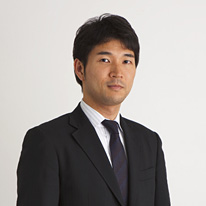
Associate at Nagashima Ohno & Tsunematsu
One of the key sports law issues to watch in Japan in 2018 is the potential establishment of an international arbitration centre in Japan that is backed by the Japanese government. Although the details of the project remain unclear, various government departments have set up a task force to consider how best the government could encourage and increase the use of arbitration proceedings in Japan for international disputes, including sports-related cases. At present, it is expected that the arbitration centre will provide the relevant arbitration organisations with (1) facilities, such as hearing rooms that are necessary for conducting arbitration proceedings, and (2) support for the training of professional personnel.
The reason behind this movement is that, while international arbitrations have become one of the most favoured proceedings for resolving disputes between international companies as business transactions become borderless, in Asia, such international arbitrations have been handled mainly in Singapore and Hong Kong, rather than Japan. It is believed that the number of international arbitrations that are held in Japan will increase if the government supports the relevant arbitration organisations in developing their fundamental infrastructure.
As for the sports law aspect of arbitration, if the aforesaid arbitration centre is established, the Japan Sports Arbitration Agency (“JSAA”), which handles various sports-related cases in Japan, will have access to high-quality purpose-made facilities. This will improve the efficiency and quality of the services that the JSAA is able to offer in relation to its arbitration proceedings, and this will help to raise the JSAA’s appeal and competitiveness. It is expected that the CAS will also be able to use these facilities to conduct proceedings of its Ad Hoc Division and Anti-doping Division, which will be set up in Tokyo for the 2020 Tokyo Olympic Games.
Europe
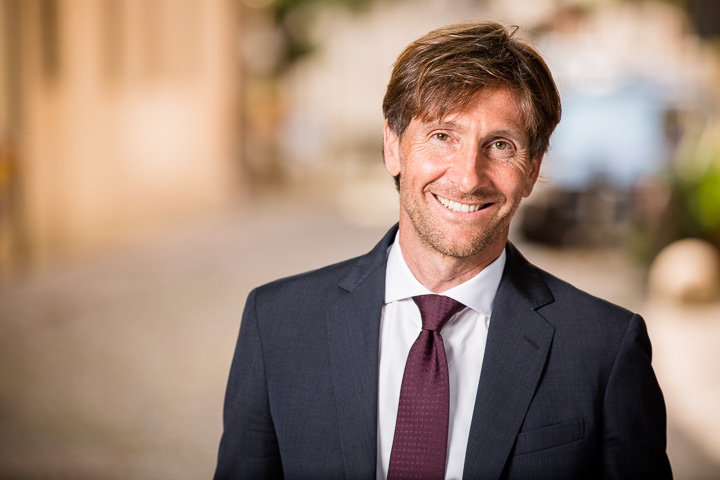 Luca Ferrari
Luca Ferrari
Partner and Global Head of Sports, Withers
Federico Venturi Ferriolo
Associate, Withers

The resilient struggle between the International Basketball Federation (FIBA) and Euroleague Commercial Assets (Euroleague) on the control of the European professional basketball games is no news to many. The conflict, including legal disputes, over the past years has gone particularly white-hot when FIBA announced the creation of Basketball Champions League.
The legal battle started in February 2016 when Euroleague filed a complaint with the European Commission (EC) against FIBA for abuses of dominant position under Article 102 TFEU. An argument made by Euroleague is that FIBA Europe exerted pressure on national federations by threatening their participation rights in international competitions were they to continue to allow national clubs to take part in Euroleague competitions.
This year, due to the intensification of the FIBA's games, its calendar apparently clashes in time with the Euroleague's competition schedules, meaning that Euroleague players would be unable to attend national competitions. As a consequence, during the first window of qualification for the 2019 FIBA World Cup, the majority of players playing in Euroleague refused to join their national teams. It is now crucial for EC to take a stance.
EC has a record of ruling over sports disputes. Most recently, it has found that International Skating Union (ISU) rules imposing severe penalties on athletes participating in speed skating competitions that have not been authorised by the ISU, are in breach of EU antitrust law and the ISU had to change those rules.
Bearing these events in mind, 2018 looks set to bring a solution to this row and have the EC propose a viable response to the complaints regarding this dispute. As competition schedules inevitably mount up, the imminent question has already been put before the EC by many MEPs, "what urgent steps or measures does the Commission plan to take to put a stop to actions such as [the FIBA/Euroleague dispute] which, if they materialise, will adversely impact the development of national teams across Europe?".
 Emilio Garcia
Emilio Garcia
Head of Disciplinary and Integrity, UEFA
The new FIFA Transfer Task Force will play an important role in the future development of the international football market. This subcommittee of the FIFA Football Stakeholders Committee has been designed to analyse and propose relevant amendments over the FIFA Transfer Regulations. Consequently, the conclusions of this FIFA subcommittee will have a considerable impact on one of the key pillars of Football Law: the international transfer system. Stay tuned.
 Brent Nowicki
Brent Nowicki
Managing Counsel and Head of Anti-Doping Division, Court of Arbitration for Sport
Sports administrators and legal practitioners should keep a very watchful eye on allegations of sexual harassment and bullying in sport. As the world has recently seen, this issue (at least with respect to sexual harassment) has caused a tidal wave of accusations, terminations, and varying legal implications in non-sport capacities (Hollywood, politics, etc.) in the USA. Sport has not been completely immune to this issue as we have seen significant allegations, for example, in USA gymnastics and swimming. It seems plausible that more allegations could surface in sport at every level (in Europe and elsewhere) in the coming year. In the USA, several national governing bodies have developed safe sport regulations and procedures. I suspect we will see more European NGBs, IFs, NOCs, etc. establish safeguards for its athletes, and perhaps more importantly, provide avenues for redress to those who have been victims of these issues.
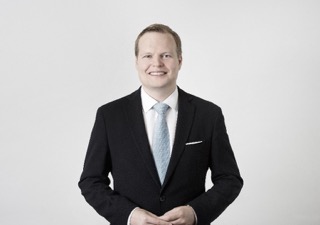 David Casserly
David Casserly
Partner, Kellerhals Carrard Lausanne/Sion SNC
Although one can never tell what kind of fascinating cases the sports world might throw up over the next twelve months, at the moment it seems very likely that the IOC’s decision to exclude Russia from the 2018 Winter Olympics, which will likely give rise to a number of disputes, is likely to be one of the biggest, if not the biggest, sports law issue of 2018.
There will be some high profile European football cases in 2018, including a very significant case that we will be working on in the coming months, but in terms of significance for the global sporting community, the IOC decision regarding Russia is likely to be the most significant.
Josep F. Vandellos
Sports Lawyer
Following the path initiated in the US by some sports, Europe will need to confront the regulation of the use wearables by athletes and the use of data collected by clubs and Federations of movements such as distance, velocity, acceleration, jumps; or biometric information such as heart rate, skin temperature, hydration; or the fitness and performance information of athletes. The setting of the cybersecurity standards for the storage of data collected will also need to be addressed. All these challenges, in the context of the entry into force of the EU General Data Protection Regulation 2016/679 in 25 May 2018.
- Africa Anti-Corruption Anti-Doping Asia Asian Football Confederation (AFC) Australia Australian Ant-Doping Agency (ASADA) Bahrain Board of Control for Cricket in India (BCCI) Bribery Broadcasting China Chinese Football Association (CFA) Collective Bargaining Agreement (CBA) Commercial Consejo Superior de Deportes (Supreme Sports Council) Court of Arbitration for Sport (CAS) Court of Arbitration for Sport Ad Hoc Division (CAS AHD) Cricket Cycling Data Europe FIFA FIFPro Football Governance Image Rights India Indian Premier League (“IPL”) Integrity Intellectual Property International Cycling Union (UCI) International Olympic Committee (IOC) Japan Kuwait Malaysia National Anti-Doping Agency (NADA) National Rugby League (NRL) Nigeria Olympic Olympic Games Rio de Janeiro 2016 Paralympic Player Transfers Regulation Rugby Russia Sponsorship Sportradar Swimming Tokyo 2020 Trademarks UEFA UEFA Champions League World Anti-Doping Agency (WADA)
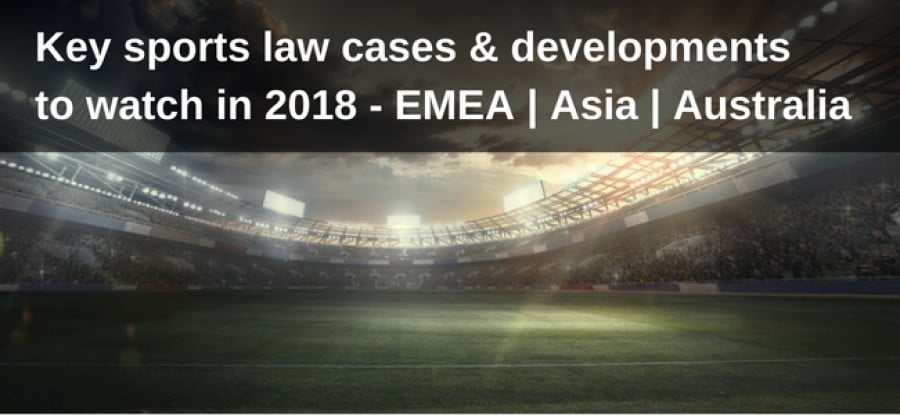
 Global Summit 2024
Global Summit 2024